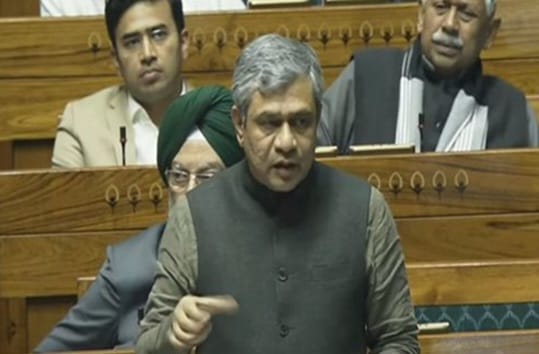New Delhi : Loksabha on Wednesday passed the Indian Telecommunications Bill 2023. The government had introduced the Telecommunications Bill 2023 in the Lok Sabha on the 11th day of the winter session of Parliament. This bill allows the government to take over, ban or suspend any telecom service or network in the interest of citizens.
This bill will replace the 138 year old Indian Telegraph Act. In this bill, there is a provision for the government to have the right to suspend or ban the equipment related to telecom service of any country or person from the point of view of national security. Besides, a provision has also been made to ban mobile services and networks in case of emergency. The new Bill also has a provision to provide a non-auction route for allocation of satellite spectrum.
Communications Minister Ashwini Vaishnav said that this bill provides for blocking and interception of transmission of messages in case of public emergency, in the public interest. This new bill will replace the Indian Telegraph Act 1885, the Indian Wireless Telegraphy Act 1933 and the Telegraph Telegraph (Unlawful Possession) Act 1950. In this bill, there is a provision of 3 years in jail and a fine of up to Rs 50 lakh for purchasing a fake SIM. Not only this, the bill mandates biometric identification before issuing SIM cards to consumers.
The Union Minister said a single-point simple authorisation system has been put in place instead of 100 kinds of licences. Mr. Vaishnaw said the Bill will also pave the way for a speedy and simple grievance redressal system with four four-tier dispute resolution mechanisms. He also assured the House that all provisions align with time-to-time observations and directions of constitutional benches of the Supreme Court regarding spectrum.
Some key Features of Telecommunications Bill 2023
Prior consent of user needed for specified class of messages. Mechanism needed for reporting malware, etc, by users.Those violating rules will face imprisonment and fine.
As per the bill, “the central government shall assign spectrum for telecommunication through auction except for entries listed in the First Schedule for which assignment shall be done by administrative process.”
The bill makes it mandatory for companies to issue SIMs after capturing verifiable biometric data of the applicant to prevent misuse of telecom resources.
The bill has a provision for a jail term of up to three years or a fine of up to Rs 50 lakh for a person obtaining SIM or other telecom resource through fraud, cheating, personation.

